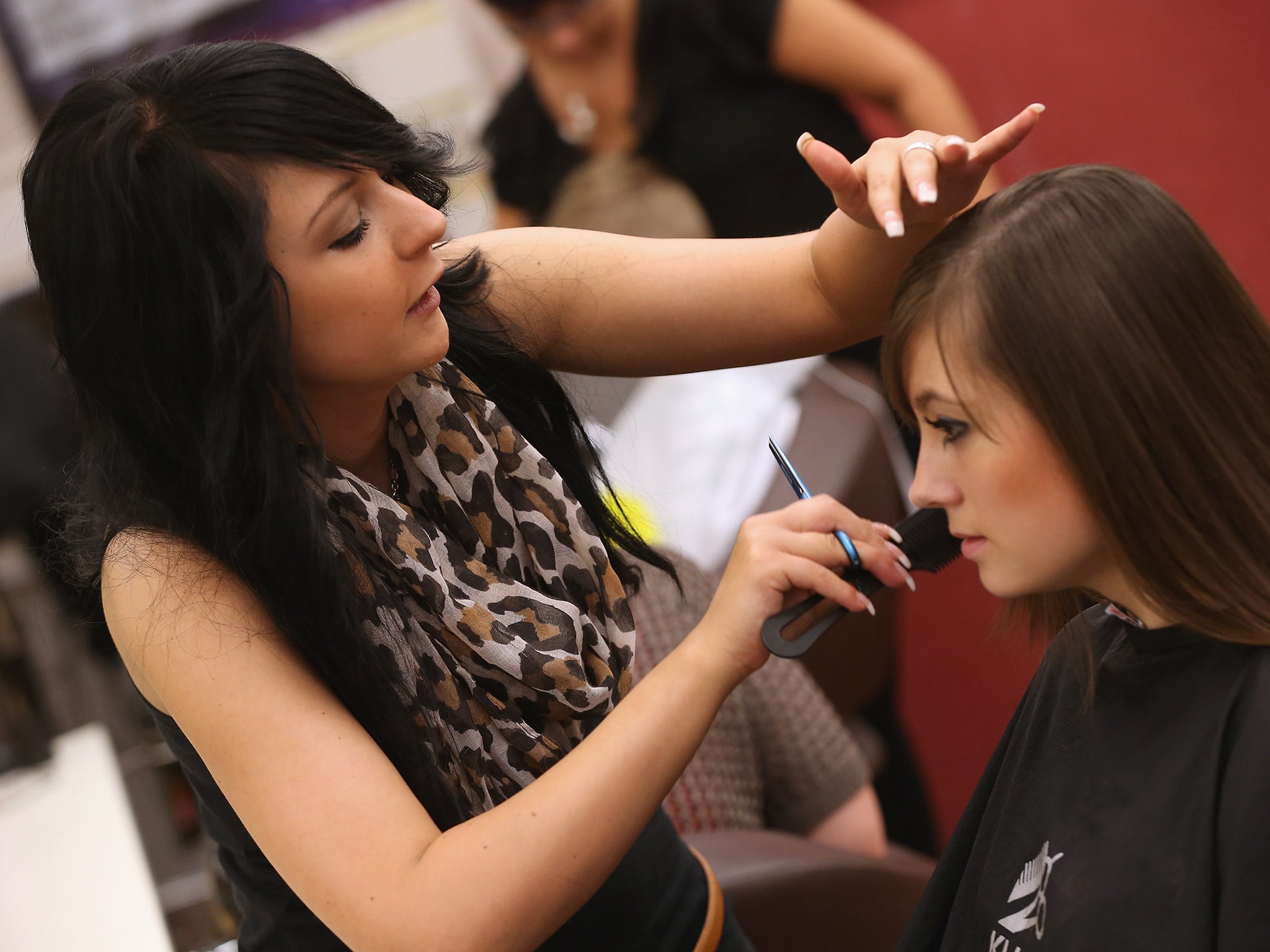All hairdressers must be trained in domestic violence support under new US state law
'It's one of the highest-touch industries, which creates a bond with your clients,' says stylist

All hairdressers in the US state of Illinois will receive training in domestic violence support from January.
In an amendment to state legislation regulating the grooming and beauty industries, authorities intend to make use of the close relationship many stylists have with their clients.
The measure is backed by the Professional Beauty Association trade body, which also runs a programme to raise awareness among hairdressers of domestic abuse and to refer victims to support centres.
“When you’re a hairdresser, you're touching people first,” Jamie Feramisco, a hairdresser and domestic abuse survivor from Quincy, a city in the west of Illinois, told the local Herald Whig newspaper.
“I'll start touching your hair before I really even start talking to you. It’s really close. It’s one of the highest-touch industries, which creates a bond with your clients.”
More than in most industries, hair stylists often have a very friendly relationship with their clients.
While creating a close bond, these factors also allow stylists to pick up on evidence of domestic abuse that may not be visible to others.
Campaigners say that for many female victims of domestic violence, a hair salon may be the only safe space they have or are allowed to go to without their abuser.
Forbes top 20 most powerful women in the world
Show all 20Furthermore, in what is often a safe, all-female environment, abused women may open up about their experiences.
Stylists will not be required to report abuse, but will be trained to look for warning signs and offer support. They will also learn which crisis groups to direct women to.
“The whole idea is to help hairdressers deal with disclosures,” said JJ Magliocco, a worker at domestic violence charity Quanada, to the Herald Whig.
“There is a right way and a wrong way to talk to someone. It can make or break the way a person handles their assault.
“We are teaching them that they can make a difference. They don’t have to keep their mouth shut.”
If you have been affected by domestic violence in the UK, you can contact the National Domestic Violence Helpline free on 0808 2000 247
Subscribe to Independent Premium to bookmark this article
Want to bookmark your favourite articles and stories to read or reference later? Start your Independent Premium subscription today.

Join our commenting forum
Join thought-provoking conversations, follow other Independent readers and see their replies